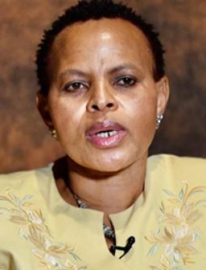
As many young people continue to grapple with the rate of unemployment in the country, work is underway to turn the situation around.
Results of the Quarterly Labour Force Survey (QLFS) showed that South Africa’s unemployment stood at 32.6% in the first quarter of 2021. Unemployment among those aged 15-34 years stood at 46.3% and the rate was 9.3% among university graduates.
The country has long been facing the challenge of unemployment.
This is what informed the development of a National Youth Policy (NYP) 2020-2030, which was approved in October 2020, and unveiled in March this year.
The policy aims to strengthen youth development, both during and post the COVID-19 era. It also seeks to add to creative and innovative ways to address the high unemployment rate, which is also linked to mental health issues.
Established by the Department of Women, Youth and Persons with Disabilities (DWYPD), the policy for 2020-2030 builds on South Africa’s first and second NYPs, which covered the 2009–2014 and 2015-2020, periods respectively.
The policy improves upon and updates the previous policies by highlighting the current and new challenges that South African youth face. It also takes into cognisance the historical realities that the country faces, including slow economic growth.
The 2020-2030 NYP also identifies the potential human capital inherent in young people as an untapped potential that should be harnessed for the benefit of society. It also advocates the need for key players, including government and private and civil society sectors, to intensify their commitment to keep youth development as a priority.
Research done by the DWYPD, which focused on the 25-year review, showed that the country is not doing much when it comes to the development and empowerment of young people.
“[The] public and private sector is not responding effectively to young people’s needs. The policy seeks to try and ensure that service providers accelerate implementation of interventions, so that young people can benefit and become contributing members of society. Many youth take far too long to transition to adulthood due to unemployment, and this is a concern,” says Chief Director responsible for youth development in DWYPD, Dr Bernice Hlagala.
In an interview with SAnews, Hlagala says the policy has an Integrated Youth Development Strategy, developed by the National Youth Development Agency (NYDA).
“The strategy is informed by five key pillars of the policy, which are quality education skills and second chance; economic transformation, entrepreneurship and job creation; mental health and promotion of physical health, and also looks at issues of pandemics; social cohesion and nation building; and effective and responsive youth development machinery.”
Set aside
Apart from the issue of unemployment raised during public consultations, prior to policy approval last year, the Fourth Industrial Revolution (4IR) was also under the spotlight, where young people recommended that 4IR should be seen as a cross-cutting pillar and lead to job creation.
“We have now said that all industries that have a high absorption capacity need to prioritise and employ young people, There’s a need for [a] set aside for young people in sectors like agriculture, tourism mining, [and the] oceans economy.”
The policy also emphasises the need to address societal issues facing young people.
“In the new policy there’s now emphasis on promoting mental health as many young people are suffering from mental health [challenges], scaling up the national youth service programme, in order to ensure young people have values inculcated within them. Currently there’s a shortage of centres for substance abuse, and we are advocating for [an] increase of rehabilitation centres and services in place, as well as awareness programmes,” she explains.
Government departments will also identify specific responsibilities and targets, and further redirect young people on where they should go in order to access resources they require.
Government through the policy is confident that young people will be provided with quality education.
“We also hope that it will enable them to get employment, or to become entrepreneurs so that they can create jobs for themselves and other young people. We also look at the policy enabling young people to contribute to their immediate communities and society.
“This policy will promote physical and mental health, whilst ensuring that the institutions responsible for young people are responsive to their needs,” says Hlagala.
Making a difference
Previous versions of the National Youth Policy have had success, including the increase in the number of youth owned businesses from 595 000 in 2015 to 641 000 in 2016, as well as financial and technical support to youth start-ups and enterprises.
Other successes registered include an almost double enrolment in schools with an increase in the number of learners with post-school qualifications from 1.7 million to 3.6 million. There has also been improved youth participation in public employment programmes and the approval of the National Youth Service Framework, among others.
Several interventions aimed at improving the health and well-being of youth were also attained by NYP, and these include the Prevention of and Treatment for Substance Abuse Act 70 of 2008, the National Drug Master Plan 2013–2017, National Adolescent and Youth Health Policy 2016-2020 and the B’WISE mobisite, which was launched in 2017.
Various national and international policies and legislative frameworks inform the 2020-2030 policy.
The national policies include the Constitution; National Development Plan (NDP 2030); National Youth Service Framework (2002); National Youth Development Agency (NYDA) Act and the 25 Year Review (1994-2019) recommendations.
Among the international frameworks that inform the policy are the African Youth Charter (2006); the United Nations World Programme of Action for Youth to the Year 2000 and Beyond (1995) as well as the Sustainable Development Goals (SDGs).
The policy is a tool that that can be used to tackle the country’s unemployment challenge. - SAnews.gov.za


